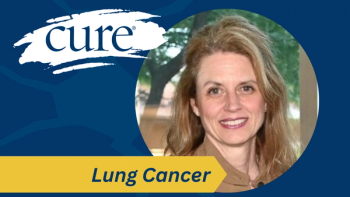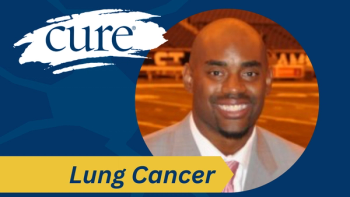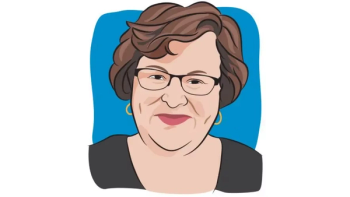
MRD Testing Helped Patient with CLL Find ‘Peace of Mind’
A two-time breast cancer survivor who was diagnosed with chronic lymphocytic leukemia in 2020 discussed her belief in the power of minimal residual disease testing.
Two-time breast cancer survivor Sue D’Agostino received a diagnosis of chronic lymphocytic leukemia (CLL) in 2020, after her annual mammogram revealed enlarged lymph nodes.
D’Agostino, a 62-year-old native of Akron, Ohio, joined a support group for patients with CLL on Facebook, where she was advised to connect with a CLL specialist. That doctor discovered D’Agostino had CLL in 90% of her bone marrow, and directed her to a clinical trial, where she received three rounds of infusions of chemotherapy bendamustine and the antibody Rituxan (rituximab).
Her CLL had plummeted to 2% of her bone marrow in just three months. She moved on to the next phase of the trial, targeted treatment with Venclexta (venetoclax), along with six additional treatments of Rituxan, with a blood sample sent to the Mayo Clinic for minimal residual disease, or MRD, testing — an assessment of malignant cells remaining in the patient’s body following treatment.
READ MORE:
“My first one came back and (it) was April of ’21, and they said I was MRD negative,” D’Agostino said. “So, they test one in 10,000 and 100,000 cells and I was in complete remission in my blood.” A September 2021 biopsy found that she was also in remission in her bone marrow.
D’Agostino, who still has her bloodwork checked every three months, spoke with CURE® about her belief in MRD testing.
Transcript:
I don't know if it's just a cost thing that a lot of people don't do it, but I would definitely encourage everybody to get an MRD test. Here again, I don't know what the cost is and I don't have insurance (that covers it) — because this was a clinical trial, it was all part of it. But just for me, it was (about) peace of mind, because it's a nagging thing. Especially for me, when I found out that CLL was in 90% of my bone marrow, that's a lot, and then to tell me, it's gone it, there's no CLL on your bone marrow. It's quite a relief. And I encourage everybody that's in my group (to) talk to your doctor about this, you know, see where you're at, because they'll tell you.
I have a girlfriend that got to 20(%), she was she was at 70(%), she did a clinical trial. And she got to 21%. So, she didn't make it to two MRD. But now she knows that. And so, she's already started another treatment, because you just want to try and knock that down and keep it at bay, if you're not going to be in remission. So that would help you to know, because there are a lot of targeted treatments out there like venetoclax, and you take those, if you can't get it down to MRD negative, you take those basically until they don't work. That could be five years, it could be 10 years, it could be whatever. And then there are so many new treatments and new clinical trials out there that by the time maybe that one stops working, you know, you move on to your next one. And you know, who knows that month that one might be the one to get you to MRD negative.
This transcript has been edited for length and clarity.
For more news on cancer updates, research and education, don’t forget to




